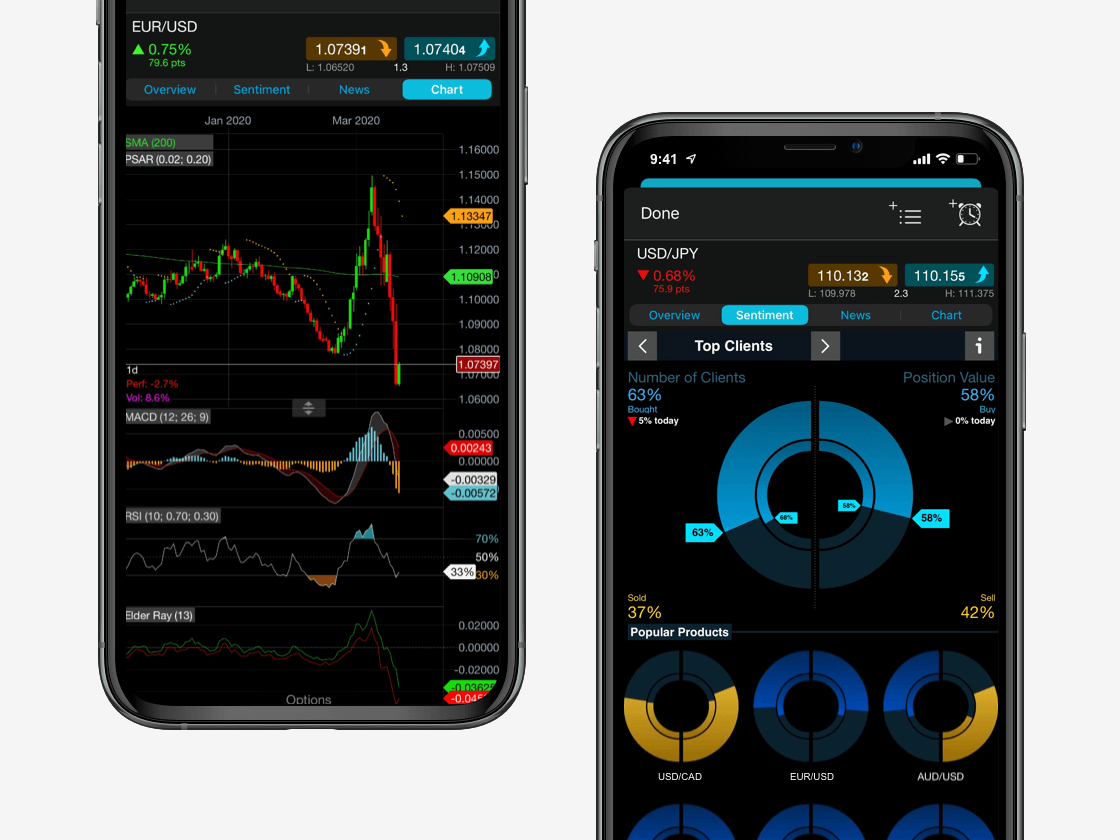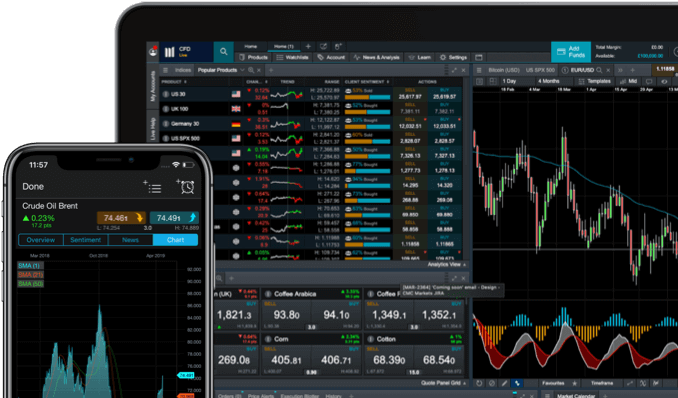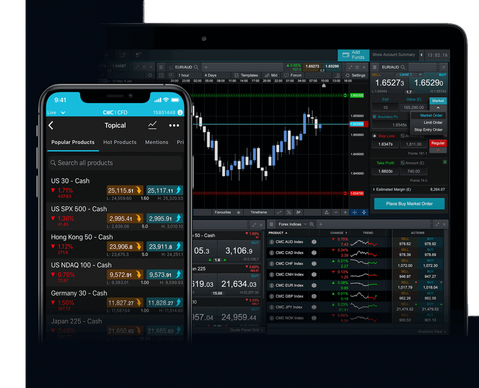
How to find undervalued stocks
Spotting undervalued stocks is a popular approach when investing in or trading stocks. If a stock is undervalued in the share market, it can be a matter of time until investors realise the stock’s value.
Trading on or buying a stock outright when it’s undervalued can be a very rewarding process, where value investors such as Warren Buffet always look to buy stocks that are undervalued in the market. Keep reading to discover where undervalued stocks can be found and how you can find them.

What is an undervalued stock?
A stock that is available to purchase on the open market below its intrinsic price can be referred to as an undervalued stock. The hardest part, however, is figuring out the stock’s intrinsic value, as there is no tried and tested technique that can be replicated across all stocks. Traders should make sure they use fundamental analysis when evaluating the investment health of a particular share or company.
Looking for an undervalued stock is more than just finding a stock offered at a cheaper price compared to competitors. Investors should look to stocks that are below their intrinsic value but also with promising growth prospects. This way, investors who purchase a stock below its real value could experience profit opportunities if the stock repeatedly provides stakeholders with an increasing level of value and business growth. Undervalued stocks that consistently provide shareholders with growth and returns are the definition of a well performing undervalued stock.
Warren Buffet is perhaps the most famous investor alive. Buffet built his legacy by finding stocks undervalued in the market and investing in the long term. From his rigorous stock-screening techniques, Buffet generated substantial returns from his investment portfolio. He aims to purchase stocks that are in the ‘sale’ section of the share market. However, Buffet would not just buy any cheap stock; he would undertake extensive fundamental research to ensure that the stock has the potential to grow and provide income in the long term. This is a strategy known as value investing.
It is worth noting that you should not purchase a stock based on personal opinion or hearsay. You should take time to scrutinise a company’s financial ratios and make a decision with as much data and thorough analysis as possible. Learn more about the difference between fundamental and technical analysis.
How do stocks become undervalued?
Stocks can become undervalued for many reasons. Sometimes stocks can experience short-term market volatility and briefly become undervalued. They can, however, just as quickly bounce back to a fair price. Stocks that experience short-term market volatility are usually impacted by market crashes, negative press or unexpected financial results.
However, stocks can also become undervalued without experiencing price volatility. Some stocks simply exist as ‘undervalued’ over the medium-term due to a lack of investor interest or cyclical market fluctuations. Investors who look for undervalued stocks that haven’t experienced price volatility would have to factor in long-term market sentiment towards that business or industry.
Some of the most common causes for a stock to be classified as undervalued include:
Stock market crash
When the stock market crashes, whole industries can become undervalued, as investor sentiment turns negative. This can present many buying opportunities for companies that are able to weather the market downturn. This is perhaps the most common reason for stocks to become undervalued.
Negative press
A company can receive negative press for several reasons. Bad news, however, is not as important as the market’s subsequent reaction. If investors over-react to the negative press, a company’s stock price can drop below its intrinsic value, revealing promising buying opportunities.
Unexpected financial results
Similar to negative press, unexpected financial results can cause sharp price drops in a company’s share price. Sometimes these price drops are justified, but other times the market can overreact, causing a stock’s value to fall below its intrinsic value.
Negative industry sentiment
Macro-environmental factors can cause the share prices within an industry to drop. Sometimes this is justified if the industry is falling out of favour or has tightening regulations and other blockers. However, occasionally investors get it wrong and industries can lose market value even though their performance is unaffected.
For example, technological innovations could cause investors to reallocate their assets in an industry that doesn’t provide current profit but only speculation for future growth. This could cause the share price of traditional profitable companies to lose some value on the stock market compared to new industries, even though nothing has radically changed.
Negative geographical sentiment
Similar to negative industry sentiment, macro-economic forces such as negative press can cause a nation’s stock market indices to fall. This can present opportunities to find undervalued stocks.
Unattractive industries and companies
If a company or industry is simply not of interest to investors or it is too confusing for investors to understand, it could lack investment interest. Therefore, there can be tremendous value in aiming to understand complex markets and companies that are seen as unattractive. Learn more about company analysis.
Join a trading community committed to your success
How do traders find undervalued stocks?
More often than not, undervalued stocks do not stay undervalued, so it is imperative to find which stocks are undervalued as this can soon change. Investors may use many strategies to screen for undervalued stocks and there is not one solution as it can depend on several factors. However, below are several methods that are regularly used to probe which stocks are undervalued.
Financial ratios
Financial ratios provide a simple and effective method to analyse key financial measures in businesses. Many ratios can even suggest if a stock is overpriced or of good value. However, please remember to use a multi-varied analysis when reviewing a stock’s intrinsic value and do not rely on one metric alone.
P/E ratio
The P/E ratio is one of the most common ways to measure a company’s value. It can suggest as to what extent a stock is either over or undervalued. It compares a company’s EPS (earnings per share) to its share price. A high P/E ratio can suggest that a company is over-priced, while a low P/E ratio can suggest an undervalued stock. It is common to compare figures against industry averages to gain more context into the value of an asset.
For example...
Say you buy shares in ‘Firm A’ at £500.00 a share.
Firm A has 1m shares in circulation. Firm A turns a profit of £50m. Therefore, Firm A’s EPS is £50 (£50m/1m).
After calculating the EPS, we can calculate the P/E ratio.
The P/E ratio is calculated by share price/EPS (£500/£50). The P/E ratio is 10. For every £10 you invest, you will make £1 in profit.
If the market index has an average P/E ratio of 13, Firm A has a lower than average P/E ratio. We could use this as an indicator that suggests Firm A is an undervalued stock.
View all of the financial ratios that can be used to determine a company’s value, such as PEG and P/B ratios in our fundamental analysis for beginners guide.
Cash flow
A company’s cash flow shows how much cash a company has at hand. A company that has a positive cash flow and low share price may suggests that it is undervalued. A company’s cash flow can be found in its financial statements.
It is advisable to look for a company that has a consistent or increasing cash flow, as this shows that the company has been increasing its cash at hand. This cash can be useful for investment opportunities and stock market downturns. A company with a positive cash flow may also indicate that it is responsible with its asset allocation, whereas a company with a rapidly decreasing or negative cash flow should be avoided.
Growth prospects
A company that has respectable financial ratios and a large amount of cash at hand may present a good opportunity for investment. However, this does not mean much if the company has a low prospect for growth.
Ideally, a company should have a competitive advantage and good positioning for future growth. This can be determined with qualitative fundamental analysis; perhaps the best way to determine this is by analysing a company’s reports and comparing these to its competitors.

Powerful trading on the go
Seamlessly open and close trades, track your progress and set up alerts
Trading undervalued stocks
In order to trade undervalued stocks, you can start by analysing the measures above. If the stock has favourable measures in the above criteria compared to the industry, it may be a candidate as an undervalued stock.
If it meets your screening criteria, then you can go further to analyse the company's fundamentals relative to the wider market and its immediate competitors. Once analysed, combine the fundamentals with some technical analysis to give an even broader perspective on the market.
Once you have determined the undervalued stocks that you wish to trade, you can speculate on its price movements with either a spread betting or CFD trading account. Not sure about the difference in products?
- Open a live trading account to start spread betting or trading CFDs on undervalued stocks.
- Open a demo trading account to alternatively practise your trading strategies for other financial markets including forex, commodities and indices in a risk-free environment.

